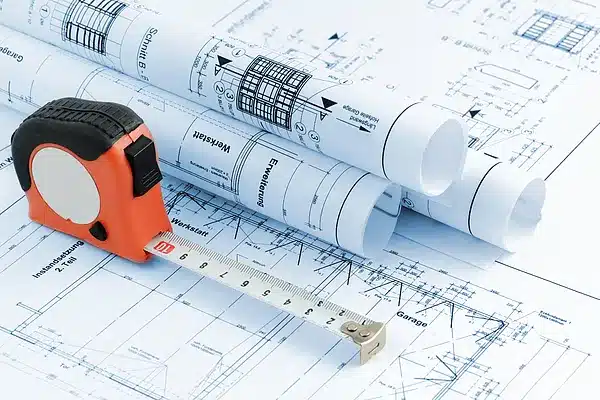What Is Surveying In Civil Engineering ? | Civil Engineering Jobs | Diploma in Civil Engineering 2023 | Types of Surveying in Civil Engineering | Surveying Definition In Engineering Construction Job Find.
What Is Surveying In Civil Engineering ?

Surveying in civil engineering is the process of determining the relative position of points and physical features on or near the Earth’s surface. It involves measuring and mapping the land and determining it’s topography, as well as locating natural and man-made features such as buildings, roads, utilities and property boundaries.
The surveying process typically begins with the establishment of a survey control network, which consists of a series of accurately located reference points. From there, Surveyors use a variety of tools and techniques, such as GPS, total stations, levels, and drones, to measure distances, angles, elevations, and positions.
Surveying is an essential component of civil engineering,as it provides the foundation for the design, and construction of roads, bridges, building, pipelines, and other Infrastructure Projects. It is also used in land development, mining, and environmental monitoring, among other applications.
Civil Engineering Jobs

Civil engineering is a diverse field that involves the planning, design, construction, and maintenance of Infrastructure such as buildings, roads bridges, airports, tunnels, and water systems. Here are some examples of civil engineering jobs :
Structural Engineer : Structural engineering design and analyse the load-bearing components of buildings, bridges, and other structures.
Transportation Engineer : Transportation engineers plan, design, and maintain transportation systems, including roads, highways, railways and airports.
Geotechnical Engineer : Geotechnical engineers, investigate the properties of soil, rock, and other materials that from the foundation of structures and infrastructure.
Water Resources Engineer : Water resources engineers design and manage water supply and distribution systems, as well as wastewater treatment plants and stormwater management systems.
Construction Manager : Construction managers oversee the planning, design and construction of buildings and infrastructure projects.
Environmental Engineer : Environment engineers work on projects related to environmental protection and substainabilty, including waste management, pollution control, and renewable energy.
Urban Planning and Design : Urban planners and designers work to create livable and sustainable cites and communities often working on zoning and land-use plans, transportation systems, and public spaces.
These are just a few examples of the many types of jobs available to civil engineers. Other areas of specialization included materials science earthquake engineering and project management among other.
Diploma In Civil Engineering

A Diploma in Civil Engineering is an undergraduate program that typically takes three years to complete. The program provides students with the knowledge and skills needed to design, build, and maintain infrastructure such as buildings, bridges, roads, water systems and other facilities.
The curriculum of a Diploma in Civil Engineering program typically include course such A Mathematics, Physics, Engineering Mechanics, Surveying, Material Science, Construction Technology, Structural Design, Transportation Engineering, and Environmental Engineering. Students also typically participate in hands-on laboratory work, projects, and fieldwork.
Graduates with a Diploma in Civil Engineering can find employment opportunities in a variety of fields, such as construction, project management, design, and research. They may work in engineering firms, construction companies, government agencies, or research organization. Some possible job titles include Junior Engineer, Assistant Project Manager, Draftsman, Site Supervisor and Quality Control Engineer. Further education, such as a Bachelor’s degree or professional certification, can help to advance career Opportunities in this field.
Types Of Surveying In Civil Engineering

Surveying is an essential part of civil engineering, and there are several types of Surveying techniques used for various purposes. Here are some of the types of Surveying used in civil engineering :
Land Surveying : It is used to determine the boundaries and features of land for developement purposes. It includes topographic surveying, boundary surveying, and cadastral surveying.
Geodetic Surveying : It involves measuring large area of the earth’s surface to determine the shape and size of the earth. It includes triangulation, trilateration, and satelite positioning
Hydrographic surveying : It is used to map and measure the underwater features and contours of bodies of water. It includes bathymetric surveying and tidal surveying.
Construction surveying : it is used to stake out and Mark the locations of structures, roads, and other CD features on a construction site.
Mining surveying : It is used to determine the location and characteristics of mineral deposits in the earth’s crust.
Photogrammetric surveying : It involves using aerial photographs to determine the locations and features of objects on the ground.
Tunnel surveying : It is used to measure and map the interior of tunnels during construction or maintenance.
Archaeological surveying : It is used to locate and map archaeological sites and features.
What Is Surveying In Civil Engineering
How To Get A Civil Engineering Job With No Experience 2023 Full Details 👉Click Here
Construction Jobs Guide 2023👉Click Here
| LC Infra Project | Click Here |
| WhatsApp Group | Click Here |
| Facebook Group | Click Here |
| Telegram Group | Click Here |
